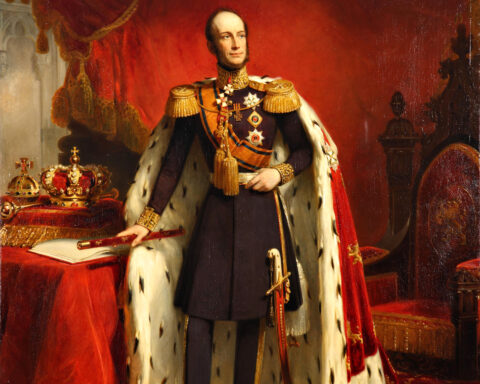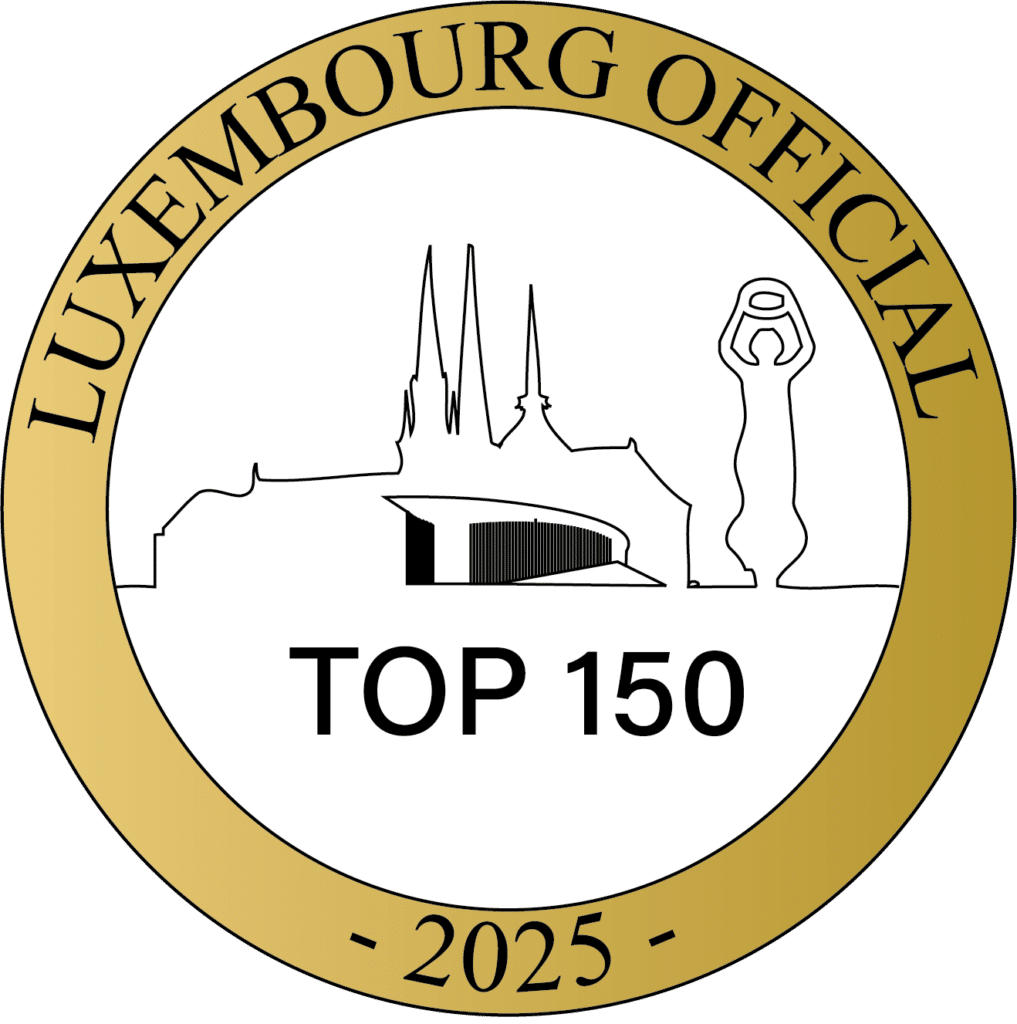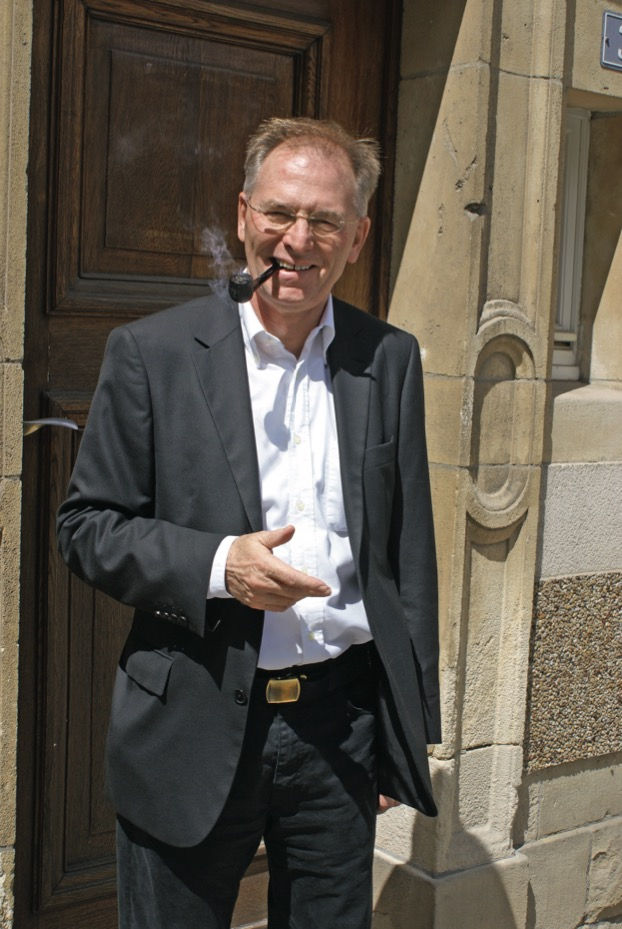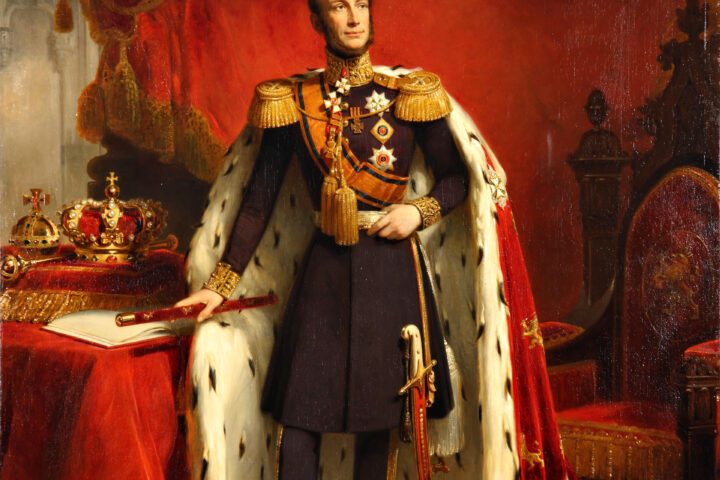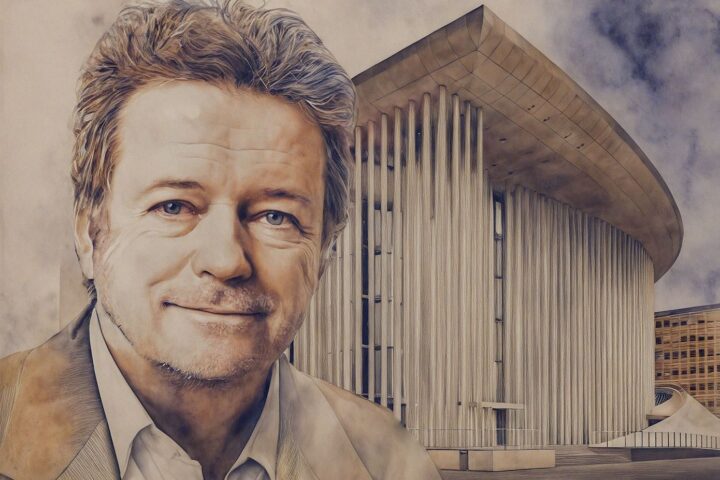Apart from the period from 1795 – when Luxembourg was conquered by the French troops of General Jourdan – until the final act of the Congress of Vienna in 1815, the geographical area of Luxembourg has always been identified as a distinct territorial entity.
963
The collapse of the Carolingian empire gave rise to the great «principalities» in our regions: the Hainaut as of the 9th century, Flanders, Namur, Liège and Luxembourg. It was around 963 that Siegfried, scion of the powerful «Ardennes» clan, acquired a rocky promontory looming above a loop of the Alzette river. Close to the Emperor, Siegfried would later enhance his possession by installing a market and founding a church there, thus laying the foundations for a new sovereignty between the Meuse and Moselle rivers. At that time, the destiny of the Luxembourg territory depended on the play of matrimonial unions and successions. It was a question of well-considered family ambitions, but also a matter of luck. For the most ambitious amongst them, the determination to expand their territory would remain a constant concern. When the Luxembourg Count Henri VII ascended to the throne of Germany in 1308, the House of Luxembourg became an Eastern power. It would give other three sovereigns to the German throne: Charles IV, Wenceslasand Sigismund. Obliged to borrow money to finance their ambitions, they put up their Duchy as collateral, and it then passed from creditor to creditor until it was finally purchased in 1441 by the Burgundian Philip the Good. From the vast Burgundian territory there would survive the area of the Netherlands, a highly-cove-ted confederation whence would emerge, in the 19th century, the contemporary State of Luxembourg ?
The French invasion
The French invaded in 1795 and made the Duchy a part of France. After the fall of Napoleon I, the Great Powers granted Luxembourg to William I of Orange-Nassau at the Congress of Vienna of 1814. They integrated it into the newly-created Germanic Confederation and made of the capital a fortress defended by a Prussian garrison. William I sought to join Luxembourg to his other territories in order to make it the eighteenth Province of the Netherlands. Following the Belgian Revolution of 1830, the Great Powers granted Belgium the status of an independent and neutral State, and the Walloon part of Luxembourg was ceded to it. When William I abdicated in October 1840, his eldest son succeeded him under the name of William II. Eager to turn Luxembourg into a genuine State, the new sovereign issued in 1841 a first constitutional text that confirmed the autonomy of the Grand Duchy vis-à-vis the Netherlands. It was under the same sovereign that the country in February 1842 ratified the agreement with the German Customs Union, an agreement that was regularly renewed and which permitted the country’s industrial development and helped facilitate the passage from the rural activity of the Ancien Régime towards a highly industrialised economy enhanced by the development of steel making and later of agriculture. It didn’t take long for this prosperity to draw covetous attention from various neighbours. In 1866 the Austro-Prussian war blew the Germanic Confederation apart. Following the 1866 Treaty of Prague, Luxembourg regained its sovereignty – which was soon threatened, first by Napoleon III and then by King of the Belgians Léopold II, who sought in vain to have it incorporated into Belgium. In order to counter any further desires of annexation, the European powers gathered in London in May 1867 and declared the territory to be perpetually neutral, following which the fortress was dismantled, the country demilitarised and the Prussian garrison evacuated from the city.
The 20th century
Following the First World War, the government denounced the treaty binding it to the German Customs Union and signed, in 1922, an economic union agreement with Belgium. Concluded for a period of fifty years, the treaty went far beyond the framework of a simple customs union and established a community of revenues between the two countries for both customs and excises. The relation of forces gave the leadership to Belgium and, although the Belgian-Luxembourg Union never gained the importance acquired long ago by the German Customs Union, it nevertheless made it possible to free the national economy from the isolation to which it had been relegated by the First World War. During the course of the Second World War, the Belgian, Dutch and Luxembourg politic leaders in exile in London understood how close their interests were with one another and, on 5 September 1944, adopted the agreement for the Benelux Treaty, regarded by many as the «matrix» for the later European Union.«Luxembourg, honest broker of Europe» as Theodore Roosevelt characterised the Grand Duchy… Based on the experience acquired in the previous unions, Luxembourg would undoubtedly participate prudently, but with a growing autonomy, in the development of the major European worksites, both through the effective role it received as a result of accession to the new international institutions and via the decisive action of several of its top politicians.The major upheavals were incontestably, firstly, Luxembourg’s participation in the European integration, and secondly the fact that the City of Luxembourg was chosen in July 1952 to serve as headquarters for the High Authority of the ECSC. Other Community institutions- such as the European Court of Justice, the European Investment Bank, the Court of Audit, the Office of Statistics, the Office of Publications and the secretariat of the European Parliament– would soon establish themselves here as well. Thus, over the decades, the particularly favourable economic conditions, the diplomatic alliances with historical partners and the political adroitness of certain of its leaders have permitted the country not only to be an active player in the development of the European project, but above all, for the first time since its contemporary resurgence, to emerge from its long diplomatic reserve to occupy a modest but real place in the new order of Nations.














